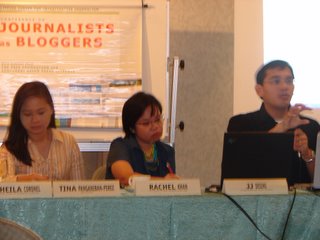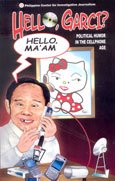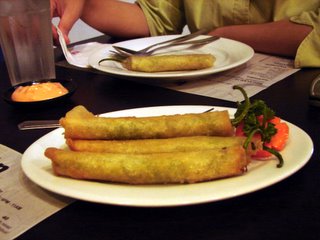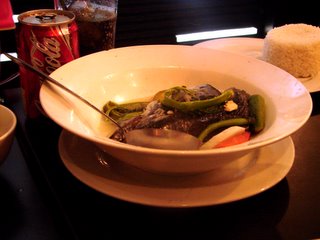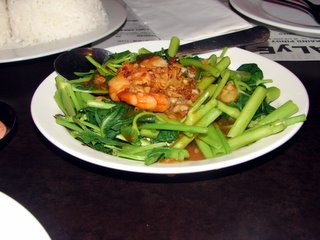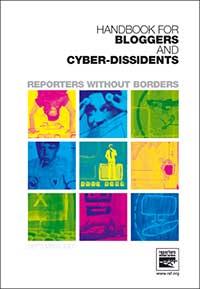
I am finally speaking after the “Pinoy Ako” controversy has pretty much watered down, although I am quite sure that the issue would still linger, primarily due to those rabid
Orange and Lemons fans who would probably shoot anyone defaming their beloved band, and to those who wanted bands like Orange and Lemons to speak the truth behind the rip-off. Now that the radio stations and music channels are airing the band’s next single, let me state a few things before I finally move on.
A rip-off, periodTo begin, I would like to reiterate what I posted earlier: “Pinoy Ako”, the song that catapulted Orange and Lemons to stardom, is a brazen rip-off from “Chandeliers”, a song of the defunct 80’s band
The Care based in the United Kingdom. For those who staunchly defend Orange and Lemons, I dare them to actually listen to both songs. Why, even youngsters could tell that the chords and melody of both songs are practically the same!
But all you have to do is listen to both songs. You don’t have to be a music expert to know that “Pinoy Ako” was a “Chandeliers” rip-off. I am an avid listener of music, including new wave and rock music. Our band has performed mostly rock songs, particularly on the emo-punk and emo-core genres. But my limited knowledge of music says that “Pinoy Ako” was a second-rate, trying hard copycat of “Chandeliers”.
I already posted earlier on this issue, complete with audio files of “Pinoy Ako” and Chandeliers”. But here are the audio files of the two songs again, for those dismissing the issue outright as a black propaganda on the popular band and the skeptics out there who are too lazy or do not have the time to browse through my pages:
“Pinoy Ako” by Orange and Lemons “Chandeliers” by The Care I was able to have a link comparing the files at the same time. On the right speaker, you will hear the Care song, and on the left, the Pinoy version. Got this information from a new acquaintance,
Pulp music magazine writer
Giselle Roque:
“Chandeliers” and “Pinoy Ako” combined version 1Another link combining the two songs:
“Chandeliers” and “Pinoy Ako” combined version 2Several bloggers have tackled this rule as well, with some interesting findings. One such blogger is Alfie Vera Malla, who, according to his
blog, is into New Wave (the Orange and Lemons said in their interviews that most of their influences came from 80’s or New Wave bands) and an
Ian Broudie fan (Broudie was one half of The Care duo;
Paul Simpson was the other). Malla said in his
post that in his discussion with fellow new wave enthusiasts, “Pinoy Ako” was indeed a rip-off.
Alfie said: “As a fan of Care and as an enthusiast of Alternative Rock music for more than two decades now, I knew right away, upon first listen to the song in question, that it is not simply an accidental sound-alike of The Care’s ‘Chandeliers’, but that it is in fact a direct rip-off of this – something which the Orange and Lemons most likely thought would pass unnoticed because of The Care’s obscurity.”
He added: “In fact, even some friends who are not that much into music, more so Alternative Rock, after listening to both songs, did not find difficulty in passing judgment: ‘Both (songs) did sound uncannily alike’.” By the way, Alfie and Giselle are members of an e-group of New Wave musicians and enthusiasts. Alfie discussed the rip-off issue with the said e-group, with most of them concluding that indeed, “Pinoy Ako” was rip-off.
Another
blogger wondered: “I wonder if the band Orange and Lemons realize that copyright infringement isn’t something to be proud of. She asked: “
Anong sinasabi ng kantang ito? Na ipakita natin sa mundo na ang kaya lang ng Pinoy ay manggaya?”
“A part of me wants (Orange and Lemons) to get sued to teach them a lesson. A part of me feels sad that they had to resort to this to gain a foothold in the music industry. What had become of the local music industry?”
another said.
Now, what are the arguments raised by Orange and Lemons in their defense?
The “seven-chord progression rule” defenseThe foremost mantra taken by the band and fans was: The song did not violate the seven-chord progression rule, and therefore it did not plagiarize the Care song.
Alfie was able to find an
article written by songwriter A-J Charron, who has written more than 60 articles for the Guitar Noise music website, who explained how to determine if a song plagiarized another. Taking Charron’s article in mind, I would say that, basing from the chord and melodic patterns of “Pinoy Ako”, the Orange and Lemons hit was a rip-off of the “Chandeliers” by The Care. Alfie also shares a similar view.
True, there are only a limited amount of notes and chords, and chances are, a song may sound similar to another. But “Pinoy Ako” was way too similar in The Care song in melody, chord pattern, and structure for comfort.
Giselle offers another rebuttal of the seven-chord progression defense of Orange and Lemons. She said in her email to me: “I hate to burst the bubble but the seven-chord progression rule, in landmark cases decided by foreign courts under the Intellectual Property Rights which have been in actual existence post- or pre-world war I (has proven to be) a flimsy defense since the pattern could be changed anytime by a fret or a half-note on the seventh note.
“Presently, under the eight-chord progression based on the drum and baseline, if the song or composition in question fails to change at the eighth base and drum progression then it is a vital requisite to be considered as a plagiarized material not discounting the facts of testimonies of credible witnesses and ‘scholars’ to that effect.
“This is what admittedly happened during the course of (the Orange and Lemons) song,” Giselle, who has been a music writer for Pulp since 2003 and a supporter of Filipino indie bands and OPM, explained.
Retorts, denials, explanationI checked the interviews given by Orange and Lemons on the issue, and frankly, I could not understand their explanations. Talk about inconsistencies.
First, the band cried foul when they were accused of ripping off “Chandeliers”. In an
article in the Manila Bulletin, the band said: “It saddens us because it’s unfair.” But they admitted that “perhaps” the “guitar intro part” was the reason why people think that “Pinoy Ako” was a rip-off. If you listen to most New Wave songs, almost all start with a guitar melody, the group said.
Well, maybe most New Wave songs probably started with a guitar melody, but definitely not all of them have guitar intro parts like “Chandeliers”! And besides, the similarities of both “Pinoy Ako” and “Chandeliers” did not stop at the intro part; it extended throughout the former, except for the chorus part which had some different chord and melodic patterns. I’m no New Wave guru, but I have yet to hear another New Wave song that sounded like “Chandeliers”, or any song for that matter. Well, save for “Pinoy Ako”.
In another Bulletin
article written by Kate Villagomez also published on October 16, the band admitted to Giselle that they made the song “Carish”. In short, they know that The Care and “Chandeliers” exist, right? Why would they make the song “Carish” if they do not know that there is such a band called The Care?
Three days later, a Philippine Daily Inquirer
article quoted vocalist and guitarist Clem Castro as saying: “We have no malicious intent. In fact, we’re not even aware that such songs (‘Chandeliers’) exist.”
Huh? Were Clem and the rest of his band taking crazy pills in their
Bulletin and
Inquirer interviews? Did they know that The Care and the song “Chandeliers” exist or not?
Ano ba talaga, mga kuya?
To further add insult to the injury, Clem was supposed to have said in the band’s e-group: “
Eh ba’t kami magpapaalam?
Magpasalamat pa nga ang The Care
at pinasikat namin ang kanta nila.”
According to Giselle, the band admitted that they were pressured by
ABS-CBN to compose a song for the then upcoming
Pinoy Big Brother show, giving them only a few days to submit the song to the network’s bigwigs. Be that as it may, this does not mean that you could copy a song made by someone else. How would Orange and Lemons feel if one of their songs got plagiarized and they were not credited for it? The best thing that they could have done was asking for The Care’s permission to use the song. Or at least, they should have been decent enough to acknowledge the UK band early on, like other Filipino musicians did when they used songs of other musicians.
Some Orange and Lemons fans accuse me of crab mentality; that I am just riding on the band’s popularity. For you guys, I have three reasons: If only Orange and Lemons have been forthright about the rip-off and should have at least credited The Care for the song, then the issue would have died down easily. But, no, they have to wait for someone else to react, apparently thinking that nobody would notice the plagiarism anyway. I would not have known the issue too, had it not for the growing buzz on the rip-off and the band’s inconsistent stands on the controversy.
Second, why only “Pinoy Ako” when there were songs also ripped off by other Filipino musicians? “Pinoy Ako” was different from Session Road’s “Leaving You” and Cueshe’s “Stay” (songs also accused of ripping off songs from foreign bands) primarily because it talks about our pride as Filipinos. That, hey! We should be proud as
Pinoys. As Giselle said in her email to me, “Cueshe, Session Road, etc. may not be getting much attention because their songs dealt with corporeal, if not, things which do not appeal to a Filipino’s sense of patriotism. However, Orange and Lemons’s song just hit “X” on the spot because it appeals to Filipino pride in general.”
And lastly, why would I engage in a black propaganda against Orange and Lemons? I love Filipino music, and I know the hard efforts of local indie bands to make more people listen to their songs. I do not personally know the guys from Orange and Lemons, aside from the fact that they are my fellow Bulakenyos. I was even a fan of the band. And then “Pinoy Ako” came along. When rumors about the rip-off started, I initially said that it was also a malicious attack against the band. When I heard the “Chandeliers”, my initial stand crumbled.
I promised myself and to my friends that this would be my last post on the controversy. If I would ever break my promise to write on this again, hopefully my post would be on the resolution of the issue. I pray that the issue would end with The Care properly credited for their song Orange and Lemons blatantly plagiarized, and the
Pinoy copycat apologizing for misleading the public over the brouhaha.

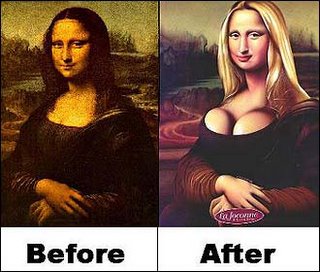 By the way, would Mona Lisa still smile when she sees what she would look like after a week's travel to the United States? Got this from an Italian site. Whoa.
By the way, would Mona Lisa still smile when she sees what she would look like after a week's travel to the United States? Got this from an Italian site. Whoa.

